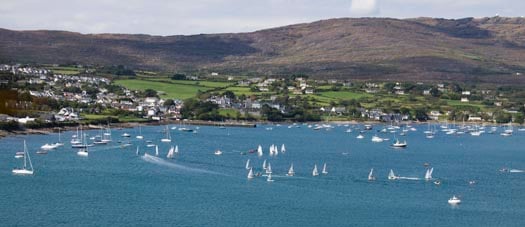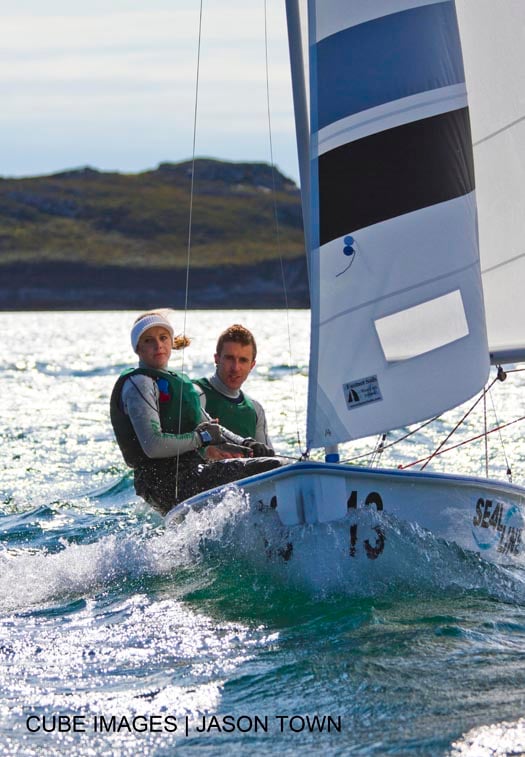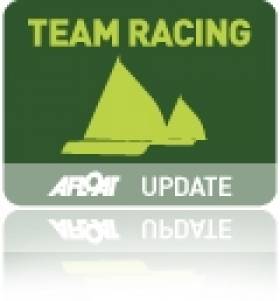Displaying items by tag: NYCC
ISAF World Team Racing Gets Underway in Schull
Full championship racing got under way in Schull Harbour yesterday as twelve international sailing teams contest the ISAF Open World Team Racing Championship and eight compete for the Youth Worlds.
The first day of full competitive racing took place in perfect conditions with a strong easterly breeze,which gradually swung southeast , allowing for a full round robin of 96 scheduled races to be completed on the day. At this early stage of competition, the top four places in the Open Championship are occupied by American and British teams.

The American first team ,NYCC Team Extreme, this year's winners of the Wilson Trophy British Open Team Racing Championship, dominated exchanges with ten wins from eleven races. Two British teams, the British University Sailing Association (BUSA) team and West Kirby Hawks share the second and third spots with nine wins from ten races and USA team The Rockets from Newport, Rhode Island, in fourth place on the round robin table.
In the Youth Worlds section of the event, the Spanish team proved to be the surprise package on the first day , winning all their races until defeated by the Irish Youth Champions, Schull Community College, in their final race. This resulted in both these teams jointly topping the table at the the end of the first day's racing.

The Official Opening of the Championship took place on Tuesday Evening, performed by Mr. Tomasz Holc, Vice-president of the International Sailing Federation, ISAF, with the hoisting of the ISAF flag and the flags of the competing nations. A highlight of the evening was a performance for the assembled teams, officials, sponsors and guests by internationally famous accordion virtuoso, Liam O' Connor, of Lord of the Dance fame and now touring internationally with his own show.
























































